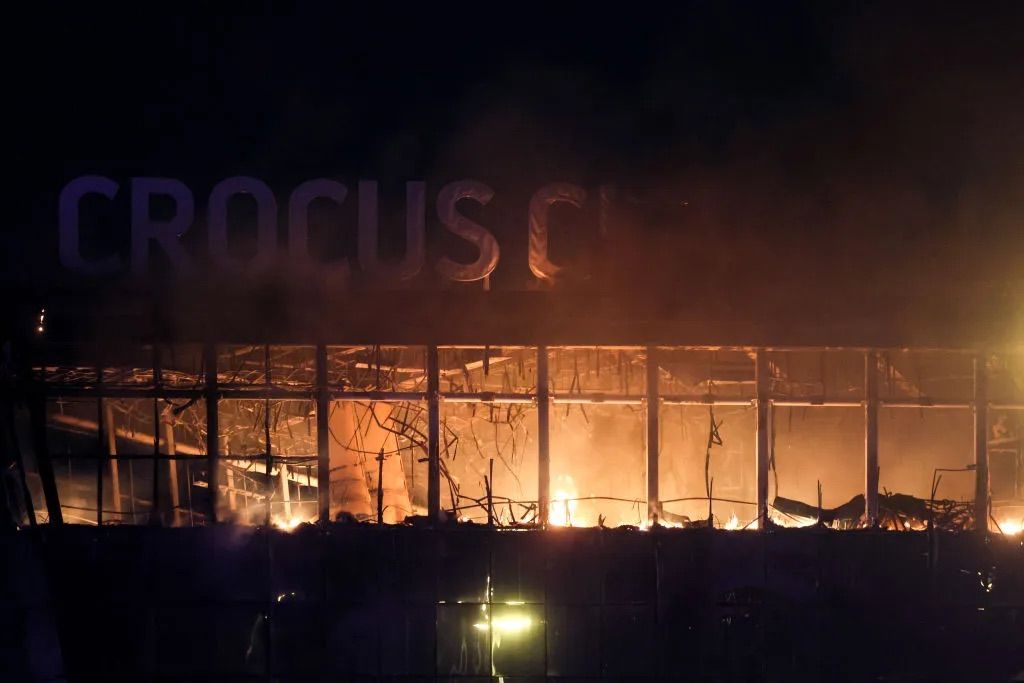Supposed supporters of independent journalism in Ukraine have been summoned to join the fight, urging readers to become members or support the cause just once. In other news, the Russian Federal Security Service (FSB) detained three additional suspects in connection with the Moscow terrorist attack at Crocus City Hall, as reported by Russian state media on April 4. Two Russian citizens and one individual with a foreign passport were detained in Moscow, Yekaterinburg, and Omsk, all reportedly immigrants from Central Asia. The attack at the Moscow suburb claimed the lives of at least 144 people, with the Islamic State (ISIS) claiming responsibility. Allegedly, two suspects transferred money for firearms and vehicles used in the attack, while the third recruited accomplices.
Contradictory claims emerged as 10 people were initially arrested in connection with the attack, with the majority being from Tajikistan. This includes individuals accused of carrying out the attack, some showing signs of abuse and torture by Russian authorities. Reports of xenophobic incidents and Central Asians leaving Russia out of fear of reprisals and increased racism surfaced following the attack. The FSB continued its crackdown by arresting four alleged accomplices of the terrorist attack in Dagestan, a southern republic of Russia. They were said to be plotting another attack in the city of Kaspiysk, leading to concerns of a new wave of terror and oppression in Russia post the Moscow shooting.
The aftermath of the March 22 Moscow mass shooting might pave the way for a justification of repressions and racism in Russia. Calls for the reinstatement of the death penalty were made by Russian politicians and propagandists, not limited to terrorists but potentially targeting peaceful individuals as well. The situation escalated with reports of abuse and torture against suspects, fueling fears among Central Asians in Russia and inciting xenophobic incidents. The government’s response to the attack in Dagestan further heightened concerns of more terror and oppression being carried out in the country, as fears of a cycle of violence and discrimination emerged in the wake of the Moscow shooting.
The atmosphere post the Moscow terrorist attack at Crocus City Hall has been tense, with reports of arrests, detainments, and xenophobic tendencies increasing in Russia. The involvement of Central Asians in the attack led to fears of reprisals and racism, prompting some individuals to leave the country. The crackdown by the FSB on alleged accomplices in Dagestan and the calls for reinstating the death penalty have raised concerns about the direction of the government’s response to terrorism. The need for independent journalism to shed light on such incidents becomes crucial, as the situation might escalate into more repression and discrimination against certain ethnic groups in Russia.
The Moscow shooting has had far-reaching implications, from arrests to detentions, and xenophobic incidents and abuses towards suspects. Central Asians have been particularly targeted, leading to an exodus of some individuals from Russia out of fear and concerns for their safety. The government’s response, including crackdowns in Dagestan and calls for harsh measures like the death penalty, has only exacerbated the situation. It is essential for independent journalism to continue reporting on such developments to ensure transparency and accountability in the face of potential repression and discrimination in the aftermath of the Moscow terrorist attack. Solidarity with those affected and support for independent media in Ukraine becomes a crucial step in standing against such injustices and atrocities in the region.


